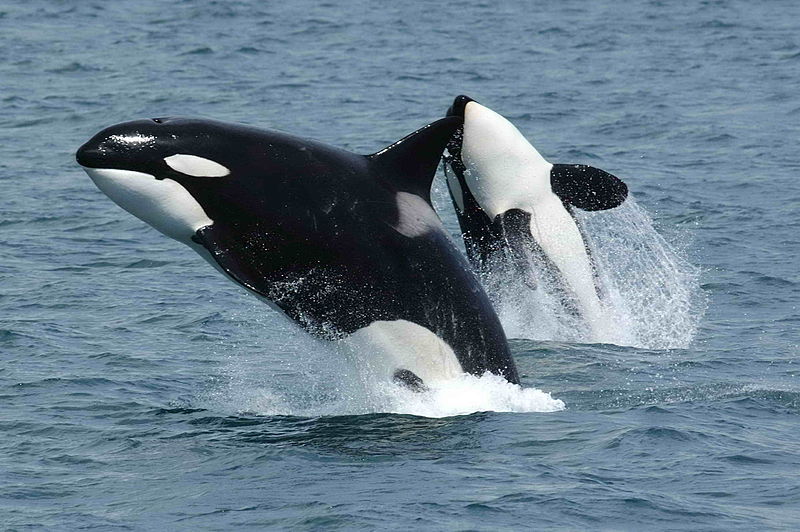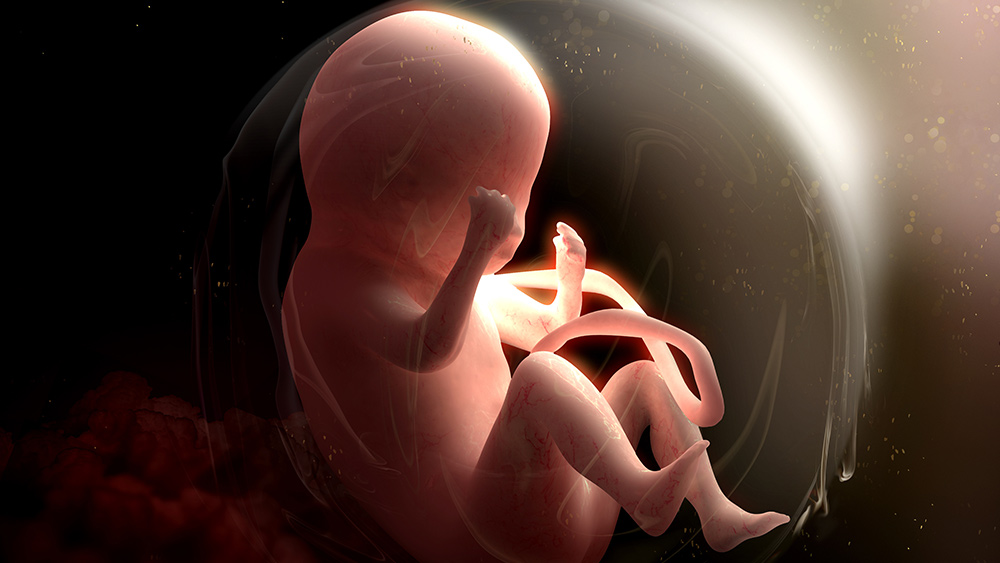Video footage shows pod of killer whales freeing a humpback whale tangled in rope
06/03/2022 / By Zoey Sky

Orcas (Orcinus orca) are known for being some of the fiercest predators in the ocean. But unusual video footage taken off the coast of Western Australia showed a pod of orcas freeing a humpback whale (Megaptera novaeangliae) from a rope tangled in its tail.
But did the orcas really try to rescue the whale?
Fierce killer whales
Orcas are often called killer whales, but they almost never attack humans. Orcas were originally called “whale killers” because ancient sailors saw them hunting in groups to take down large whales.
They are very social, diverse and ferocious marine predators. They prey on different animals, from small penguins to great white sharks. In fact, no animals hunt orcas, except for humans.
Orcas can also take down whales larger than themselves, like minke whales. They are the only animals known to prey on great white sharks.
An unusual moment of kindness
It’s hard to say if the orcas were trying to get a hold of the tangled rope or why they approached the humpback.
The video footage was taken by observers from Whale Watch Western Australia. They caught part of the interaction on drone video and they first thought the orcas might attack the hobbled humpback since whale watchers have witnessed orcas brutally attack humpbacks before.
Orcas are pack hunters and they can take down prey much larger than themselves. However, they usually target humpback calves and yearlings instead of full-grown adults.
When attacking whales, orcas will try to grab the whale flippers, turn them over and hold them under to brutally drown them.
Despite their fierce nature, footage taken on Jan. 10 shows orcas allowing the trapped humpback whale to escape safely. According to the video description, this was “the first observed interaction between orcas and a humpback in Bremer Bay, Australia, in summertime.”
Erich Hoyt, a research fellow at the charity Whale and Dolphin Conservation and author of the book “Orca: The Whale Called Killer,” said it’s unclear why the orcas didn’t attack the humpback whale.
Hoyt, who is not affiliated with Whale Watch Western Australia, thinks the orcas’ summer diet is different and that they didn’t attack the humpback whale because it was “out of season.” After all, it is known that orcas feed on beaked whales in the area, and they require “a different hunting and feeding operation,” explained Hoyt.
He also thinks that the orcas didn’t harm the humpback because they “have just eaten or are in the middle of some other behavior, or that the entanglement somehow put them off.”
But the whale-watchers think otherwise. They consider the orcas’ act a kind one.
However, the puzzle remains unsolved because there is no certain way of confirming if orcas feel a sense of altruism for fellow sea creatures.
Altruism or an off-season encounter?
Humpbacks often spend the summer months in the Southern Hemisphere, where they feed on krill in Antarctica.
The Australian Department of Agriculture, Water and the Environment reported that humpback whales are normally seen off the Australian coast between June and August during their northward migration to their breeding grounds in subtropical waters. They can also be sighted between September and November, when they head back south to Antarctica.
This is why seeing the humpback in Bremer Bay in January was rather unusual. Observers on the whale-watching boat also noticed that the whale was in poor health. It was scrawny and covered with sea lice or parasites that feed on the blood and skin of fish and whales.
The observers also saw a snarl of rope tangled around the whale’s tail, and it was easy to assume that it would soon be preyed upon by the fierce orcas.
In the video, two male orcas nicknamed Blade and Hookfin can be seen approaching the whale. Hoyt said the orcas seemed to be displaying curiosity, which is normal behavior for orcas.
The whale then defends itself by lashing out with its pectoral fins and tail fluke. According to Whale Watch Western Australia, the matriarch of the orca pod, nicknamed Queen, also approached the whale.
When the water cleared, they could see a large chunk of the rope binding the whale’s fluke floating away. And instead of attacking the humpback, the whale watchers were surprised to see the orcas move on and swim in the opposite direction of the whale. (Related: North Atlantic right whales “whisper” to protect young calves from predators.)
Hoyt said it’s difficult to confirm if the orcas did help the whale, but he acknowledged that whales are familiar with fishing gear. It’s possible that the orcas grabbed the line, either intentionally or accidentally.
However, he added that it’s impossible to say if they meant to untangle the trapped whale.
After the encounter, the humpback circled the whale-watching boat and then swam on. The whale-watching team added that the orcas spent the rest of their day socializing and “harassing sunfish.”
The range of behavior by whales at sea is “complex and varies depending on many factors,” said Hoyt. “It’s difficult to interpret behavior,” he concluded.
Visit Ecology.news for more articles about fascinating animals.
Watch the video below to see a humpback whale play with dolphins.
This video is from the Red Pill channel on Brighteon.com.
More related stories:
Killer whales are now removing and eating SHARK LIVERS with astonishing surgical precision.
Whales and dolphins engage in social talk just like humans, and much more.
Sources include:
Submit a correction >>
Tagged Under:
animal behavior, animal science, cool science, Ecology, environment, humpback whales, Killer Whales, marine animals, orcas, weird science
This article may contain statements that reflect the opinion of the author



















